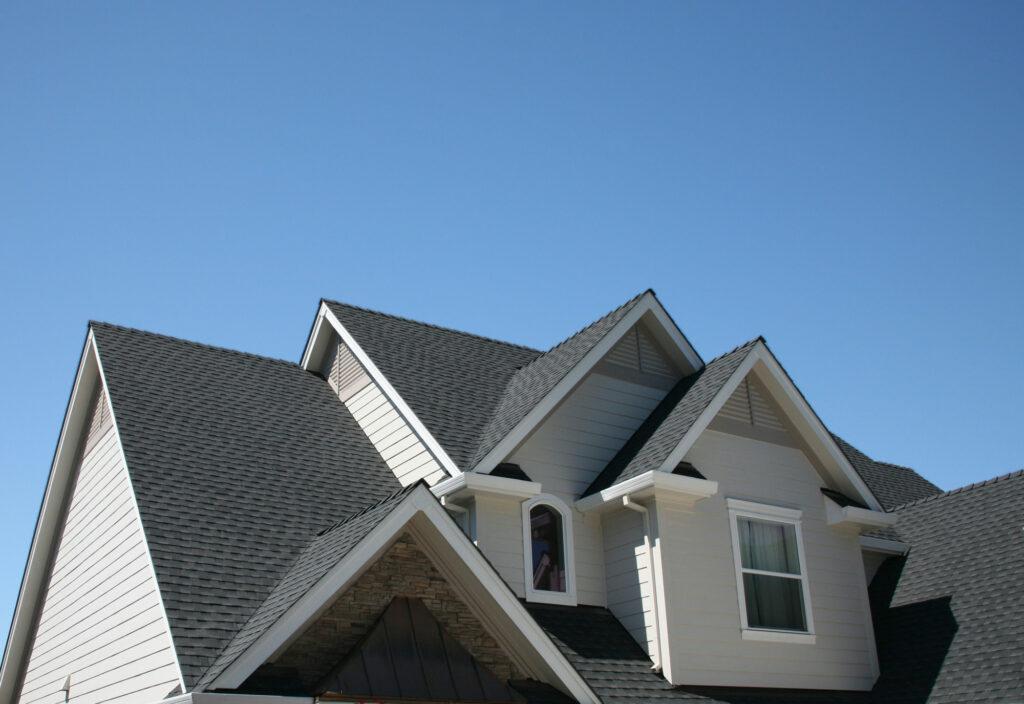When Can a Roof Be Repaired Instead of Replaced?

Your home’s roof is its first line of defense against the elements, safeguarding your family and belongings. Over time, however, roofs can sustain damage due to wear and tear, weather conditions, or unforeseen accidents. When faced with roof issues, homeowners often wonder if repair is sufficient or if a complete replacement is necessary.
If this blog post, we will ask “Can a roof be repaired instead of replaced? (the short answer is yes!) We will also explore the circumstances under which a roof can be repaired instead of replaced, providing valuable insights for homeowners in Minneapolis.
Garlock-French Roofing, a trusted name in the industry, is here to guide you through this decision-making process. If you’re weighing up whether to choose roof replacement or repair, keep reading.
Assessing the Severity of the Damage
The extent of the damage is a crucial factor in determining whether a roof can be repaired or if it requires a full replacement. For example, many minor issues can often be addressed through repairs. These include:
- Missing shingles
- Small leaks
- Localized damage
However, if the damage is widespread, affecting a significant portion of the roof or compromising its structural integrity, replacement may be the more cost-effective and long-lasting solution. One of our trusted roofing experts will be able to advise on the best option based on the condition of your roof.
Age of the Roof
Undoubtedly, the age of the roof plays a significant role in deciding between repair and replacement. Let’s explore the typical lifespans of common roofing materials, providing valuable insights to help you make an informed decision.
Asphalt Shingles
Asphalt shingles are the most popular roofing material due to their affordability and versatility. They typically have an average lifespan of 20 to 25 years.
Metal Roofing
Metal roofs are highly durable and can withstand harsh weather conditions. They have an average lifespan of 40 to 70 years, depending on the type of metal used, such as steel, aluminum, or copper.
Slate Roofing
Slate is a premium roofing material known for its durability and timeless beauty. When properly installed and maintained, slate roofs can last for well over a century.
Clay/Concrete Tiles
Clay or concrete tiles are popular for their durability and distinctive appearance. These roofs can last between 50 to 100 years, depending on the quality of the tiles and the installation
The bottom line is that by understanding the expected lifespan of different roofing materials, homeowners can make informed decisions about whether repairing or replacing their roofs is the most suitable option.
Type of Roofing Material
Let’s stick with roofing materials here, given the specific type of material your roof has will play a role in determining whether a roof can be repaired or requires a full replacement. Different materials have varying levels of durability, repairability, and longevity.
For example, as noted above, asphalt shingles are the most widely used roofing material due to their affordability, ease of installation, and versatility. In terms of repairability, asphalt shingles are relatively easy to work with. Individual damaged shingles can be replaced without necessitating a complete roof replacement, especially if the damage is localized.
If you are unsure whether or not a repair is the best option for your specific roofing material, our team will be happy to advise. We have experience working with various materials and can provide valuable insights into the specific needs and considerations of each type of roof.
Cost Considerations
When deciding between repairing or replacing a roof, the cost is a significant factor that homeowners need to consider. The reality is that both options come with associated expenses. Evaluating the financial aspects can help make an informed decision.
Repairing
Repairing specific issues on a roof is generally less expensive than a full replacement. The actual cost of repairs will depend on various factors, including:
- The extent of the damage
- The materials needed
- The complexity of the repair work
Minor repairs, such as fixing a small leak or replacing a few damaged shingles, tend to be relatively affordable. It’s important to address repair needs promptly to prevent further damage and more costly repairs down the line.
Replacing
On the other hand, a complete roof replacement typically involves higher upfront costs compared to repairs. The cost of replacement varies depending on factors, such as:
- The size of the roof
- The type of roofing material chosen
- The complexity of the installation
It’s important to consider the long-term value of a roof replacement. A new roof can provide enhanced durability, energy efficiency, and protection for years to come.
Energy Efficiency
When considering costs, it’s also important to consider energy efficiency. Upgrading to more energy-efficient roofing materials during a replacement can reduce heating and cooling costs over time.
While the upfront cost of energy-efficient materials may be higher, the potential savings on utility bills can offset the investment in the long run.
When Can a Roof Be Repaired Instead of Replaced?
When faced with a damaged roof, homeowners often grapple with the decision of whether to repair or replace it. As this blog post on “Can a roof be repaired instead of replaced?” highlights, there are a number of factors that will help you to make an informed decision that is best for your home and its occupants.
Here at Garlock-French Roofing, we offer comprehensive roofing services and can assess your roof to determine the most suitable course of action. Whether you need minor repairs or a complete roof replacement, our team of professionals can guide you through the process.
To schedule a roof inspection, contact our team today. We look forward to speaking to you.

